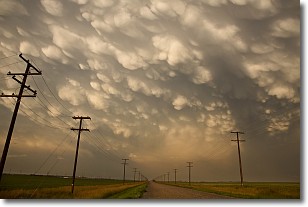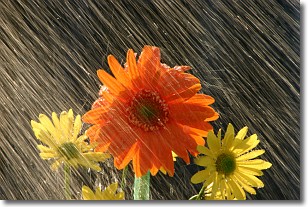Weather Alert in Indiana
Flood Warning issued July 2 at 8:54PM EDT until July 4 at 8:00AM EDT by NWS Indianapolis IN
AREAS AFFECTED: Gibson, IN; Knox, IN
DESCRIPTION: ...The Flood Warning continues for the following river and locations in Indiana... White River at Hazleton and Petersburg. ...The Flood Warning is extended for the following river and location in Indiana... White River at Edwardsport. .Recent rainfall of 3 to 7 inches across the area over the past few days has created lowland flooding along the White River near Petersburg and Hazleton, where the crest has arrived. River flooding should end before the weekend arrives. * WHAT...Minor flooding is forecast. * WHERE...White River at Hazleton. * WHEN...Until Friday morning. * IMPACTS...At 17.0 feet, Lowest reading available from the Hazleton Staff Gage. Since the 1930s the White River has moved from the "old wellhouse" to several hundred yards from the "old wellhouse". The river returns to the "old wellhouse" around 17 to 17.5 feet. * ADDITIONAL DETAILS... - There is no current observed data. - Forecast...The river is expected to fall below flood stage tomorrow evening and continue falling and remain below flood stage. - Flood stage is 16.0 feet. - http://www.weather.gov/safety/flood
INSTRUCTION: Be especially cautious at night when it is harder to recognize the dangers of flooding. Flooding is occurring or is imminent. Most flood related deaths occur in automobiles. Do not attempt to cross water covered bridges, dips, or low water crossings. Never try to cross a flowing stream, even a small one, on foot. To escape rising water find another route over higher ground. Additional information is available at www.weather.gov/ind. The next statement should be issued this evening by around 1100 PM EDT /1000 PM CDT/.
Want more detail? Get the Complete 7 Day and Night Detailed Forecast!
Current U.S. National Radar--Current
The Current National Weather Radar is shown below with a UTC Time (subtract 5 hours from UTC to get Eastern Time).

National Weather Forecast--Current
The Current National Weather Forecast and National Weather Map are shown below.

National Weather Forecast for Tomorrow
Tomorrow National Weather Forecast and Tomorrow National Weather Map are show below.

North America Water Vapor (Moisture)
This map shows recent moisture content over North America. Bright and colored areas show high moisture (ie, clouds); brown indicates very little moisture present; black indicates no moisture.

Weather Topic: What are Mammatus Clouds?
Home - Education - Cloud Types - Mammatus Clouds
 Next Topic: Nimbostratus Clouds
Next Topic: Nimbostratus Clouds
A mammatus cloud is a cloud with a unique feature which resembles
a web of pouches hanging along the base of the cloud.
In the United States, mammatus clouds tend to form in the warmer months, commonly
in the Midwest and eastern regions.
While they usually form at the bottom of a cumulonimbis cloud, they can also form
under altostratus, altocumulus, stratocumulus, and cirrus clouds. Mammatus clouds
warn that severe weather is close.
Next Topic: Nimbostratus Clouds
Weather Topic: What is Precipitation?
Home - Education - Precipitation - Precipitation
 Next Topic: Rain
Next Topic: Rain
Precipitation can refer to many different forms of water that
may fall from clouds. Precipitation occurs after a cloud has become saturated to
the point where its water particles are more dense than the air below the cloud.
In most cases, precipitation will reach the ground, but it is not uncommon for
precipitation to evaporate before it reaches the earth's surface.
When precipitation evaporates before it contacts the ground it is called Virga.
Graupel, hail, sleet, rain, drizzle, and snow are forms of precipitation, but fog
and mist are not considered precipitation because the water vapor which
constitutes them isn't dense enough to fall to the ground.
Next Topic: Rain
Current conditions powered by WeatherAPI.com




